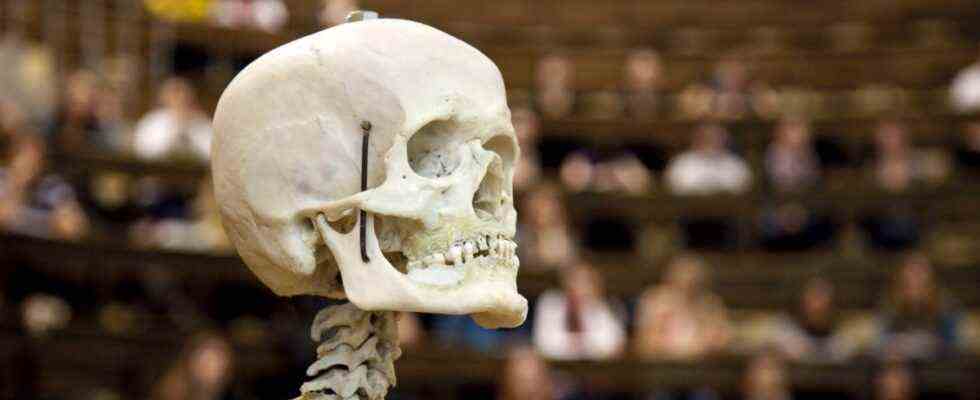So far, we have heard mainly good things about the planned medical campus in Lower Bavaria: from Science Minister Bernd Sibler, possible participating clinics in Straubing, Passau, Deggendorf and Landshut, from local politicians and the local press. This could be due to the fact that the public has so far known little concrete information about the project. For example, that external experts gave bad marks to the concepts from the University of Regensburg and the Technical University of Munich. This report is available to the SZ. Last week’s report prompted the SPD and Greens in the state parliament to demand more transparency on the matter – with success. The Committee for Science and Art has decided that the ministry should submit a detailed report with all the concepts and reports to the state parliament – by no later than before the summer break. According to the Ministry of Science, they will be happy to comply, if possible earlier.
The ambitious project is a personal concern of Science Minister Bernd Sibler. “As a Lower Bavarian, it is important to me to make this project a success,” he said in an interview with the SZ. In Lower Bavaria there is a risk of a medical shortage. Among other things, the medical campus should set this up. This should ensure that more doctors settle in Lower Bavaria because they completed the clinical part of their studies there. This is called the “sticking effect” in the concepts. However, since Lower Bavaria is the only administrative district in Bavaria without a medical faculty, a construct is used in which the University of Passau cooperates with either the University of Regensburg or the Technical University of Munich (TUM). The students would be enrolled in Regensburg or Munich, they complete the clinical part of their training at several Lower Bavarian hospitals, where lecture halls and seminar rooms are created and professorships set up for this purpose.
Experts warn against second-class medical studies
That sounds good on paper, but experts doubt that it will work that way in reality. As long as the living conditions in Lower Bavaria are “not seen as sufficiently attractive”, the approach will not bear fruit, there is “hardly any chance of sustainable structural support for the region,” says the report. But nobody knew that until now. Minister Sibler spoke of “pent-up demand” and had the concepts revised. In their conclusion, however, the experts speak of fundamental problems, and not only with regard to the postulated “sticking effect”. The experts fear that second-class medical studies will be created and international research impetus will be lacking, since the clinics involved only have care level I or at most II. For the deputy leader of the Greens parliamentary group in the state parliament, Verena Osgyan, the findings from the report sound “devastating for the project”.
TUM and the University of Regensburg have now revised their concepts. According to Matthias Wettstein, Medical Director of the Passau Clinic, at least the number of clinics involved should have been reduced. However, fundamental doubts remain as to whether the medical campus is the right instrument to deliver what it was planned for: attracting more young medical professionals to Lower Bavaria.
Originally, according to the plans of the Ministry of Science, the review of the revised concepts should be completed in the first quarter and submitted to the cabinet for approval. The construction of buildings should also start this year. It remains to be seen whether this ambitious schedule will remain in place.

